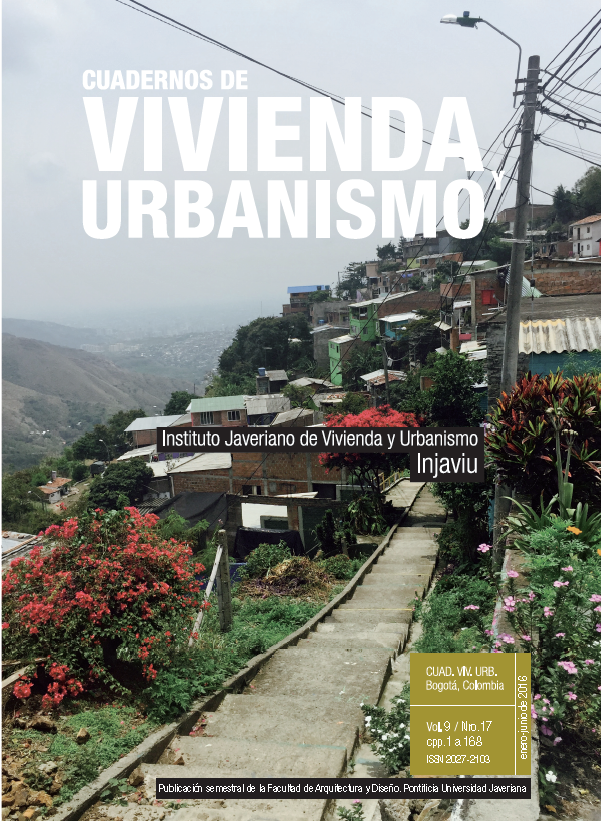Abstract
Based on the understanding of ‘the city’ as a signification that has no unique reference, this article presents an epistemocritical frame of reference that proposes that the use of the sign ‘the city’, as a singular universal, references a fiction that appears to account for the urban phenomenon in as much it is life, but in reality negates it in order to dominate it. Within a notion of western history as a dialectic of enlightenment, ‘the city’ appears as a fiction that has perpetuated itself, from Odysseus to the present day, as an instrument of domination.
This journal is registered under a Creative Commons Attribution 4.0 International Public License. Thus, this work may be reproduced, distributed, and publicly shared in digital format, as long as the names of the authors and Pontificia Universidad Javeriana are acknowledged. Others are allowed to quote, adapt, transform, auto-archive, republish, and create based on this material, for any purpose (even commercial ones), provided the authorship is duly acknowledged, a link to the original work is provided, and it is specified if changes have been made. Pontificia Universidad Javeriana does not hold the rights of published works and the authors are solely responsible for the contents of their works; they keep the moral, intellectual, privacy, and publicity rights.
Approving the intervention of the work (review, copy-editing, translation, layout) and the following outreach, are granted through an use license and not through an assignment of rights. This means the journal and Pontificia Universidad Javeriana cannot be held responsible for any ethical malpractice by the authors. As a consequence of the protection granted by the use license, the journal is not required to publish recantations or modify information already published, unless the errata stems from the editorial management process. Publishing contents in this journal does not generate royalties for contributors.


